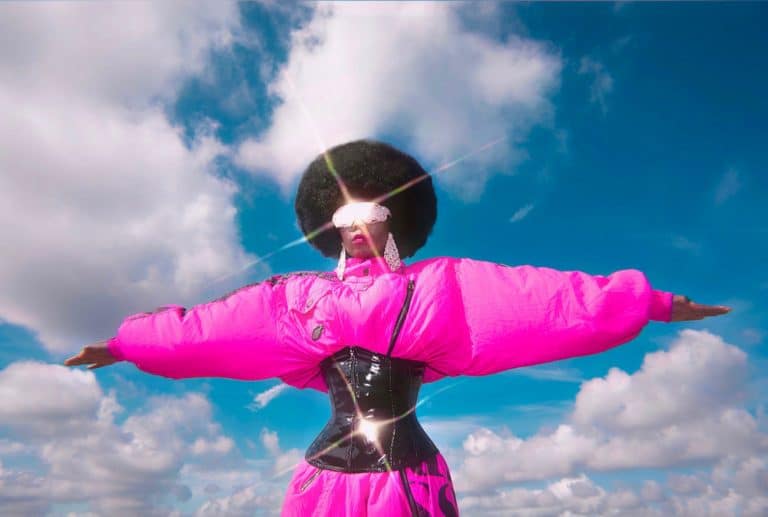The rise and fall of the Black Travel Movement should push us to explore the world
Freedom of travel is so deeply engraved into British culture and history that the first thing many of us mourned on 24 June, 2016, the beginning of the Brexit chaos, was the pre-loss of our freedom to easily reside in other European countries. But what does freedom mean to the ethnic minorities who were never given the opportunity to live in foreign countries in the first place? Everything and nothing at the same time.
Without stating the obvious, the effects of slavery are deeply engrained in black culture. Shockingly, many black people within the UK still live undocumented or with an Indefinite Leave to Remain card, due to the high increase of fees associated with the application process for citizenship. That means many among us live in a constant state of fear or anxiety related to a sense of unsettlement. That said, this Black History Month, I witnessed the importance of travel within the black community as a cure for this trauma.
Black entrepreneurship and ownership are at an all-time high due to the social shift, media presence and music culture that celebrates blackness like never before. With money comes opportunity, and with opportunity comes travel. And with that, a new movement has emerged, called the Black Travel Movement.
What started as a trend, the Black Travel Movement has now become a community of black people that share an interest in experiencing international leisurely trips. The movement started in the US and therefore is mainly discussed within it.
A recent study conducted in the US revealed that more African Americans are able to travel, because of the increase of disposable income and the development of more black-based cultural and historical sites. This also applies to the black British community. Due to the geographic location of the US, typical travel destinations of black travellers are Caribbean countries, as well as states such as Miami, Atlanta or New Orleans. Instead, this growing movement has urged many black tourists to consider countries like Morocco, Thailand or Eastern Europe for pleasure.
We all know or have been that person who turned to travel after a minor life episode. As I’m writing this, I sit at a coffee shop in Brooklyn and I couldn’t be happier for the privilege of being documented. Many people believe in the beneficial facts of travelling, such as the opportunity to reinvent yourself or becoming mentally resilient. The urge and desire for adventure have resurfaced among black people, so much so, that there has been an increase of black solo traveller’s blogs. Instagram accounts like @blacktraveljourney, @oneikatraveller and @minoritynomad are filled with endless imagery of world attractions and selfies, but also provide their followers with important racial warnings.
Travelling while black is a thing and unfortunately will always be a thing. When visiting predominantly white countries, the first thing black individuals are alerted and advised on by their peers is the discriminatory practices one may experience. In recent years, reported stories have highlighted the increase of attacks on black people. Although it’s vital for black people to hear about other people’s experiences, it also heightens the fear of travel for many and can prevent the much-needed growth that comes from travel. If you come from an ethnic background and live in the most Western of countries, racial discrimination becomes your norm. It just varies from place to place, from subtle commentaries to real racism. These attacks are disturbing, to say the least, and showcase the harsh reality of leisurely travelling while being black.
Despite the beneficial claims, the Black Travel Movement has quite recently come into hot water for duping their travellers with false pre-contexts. The organisation was accused of robbing travellers from a recent boat trip. With the package price ranging from $2,950 to $3,350 to spend a week on the boat itself, the question of affordability arose. Travellers were promised comfort, community, and great cost, but were given poor service, lack of nutriment, and additional trauma instead.
The reality of planning a holiday can be distressing when simply mentioning the cost. Yet, for black people, no detail cannot go unnoticed, because the harsh reality is that travelling could cost a life. Immigration has shown us the dark views of the world, but ownership has given us chance and hope.
On my third day in New York, I walked into an empty bar and started talking to a born and bred bartender from Brooklyn. As he offered to take me to the Blue Note, a legendary jazz bar, for a sold-out show, he said, “Today never comes but, tomorrow comes today,” and I felt that. The rise of the Black Travel Movement just demonstrates the lack of choice our ancestors faced, the sacrifices our parents made and the benefits we need to claim. Our parents crawled so we could run. Now, we need to travel and experience other cultures so our kids can fly.





